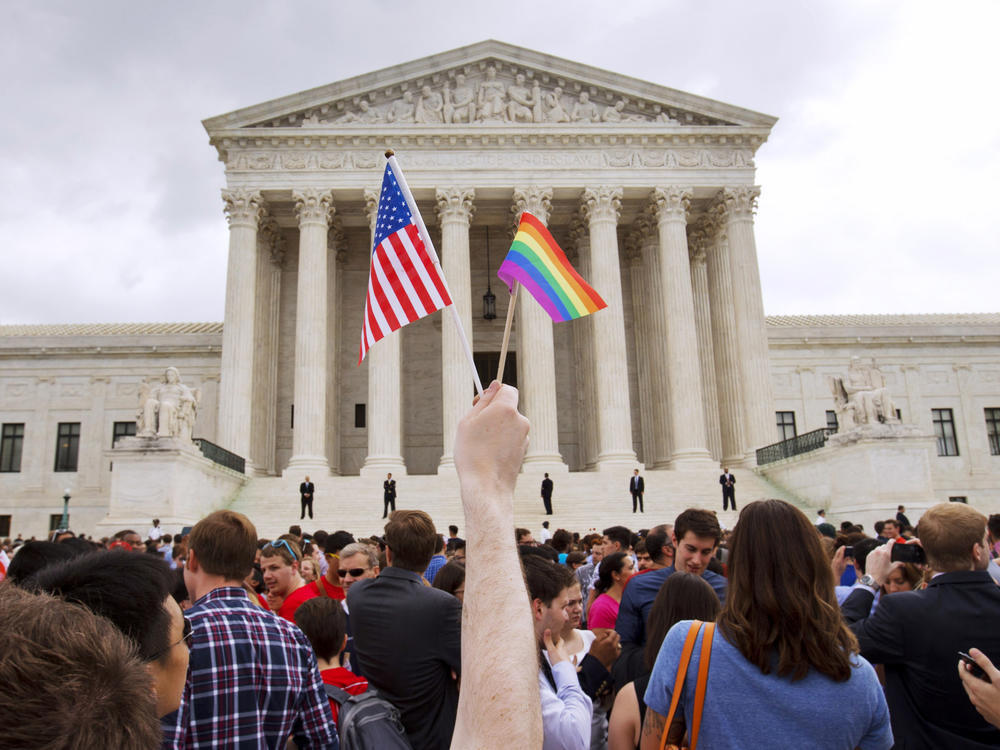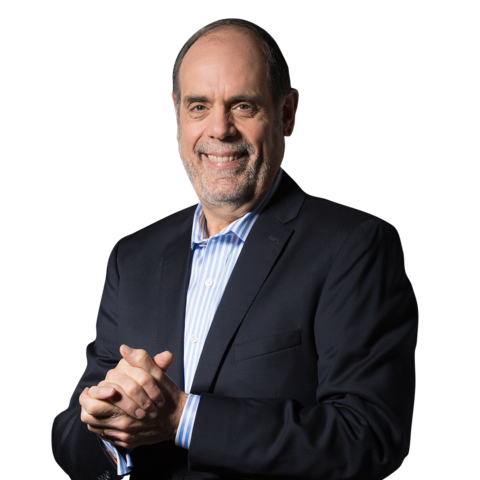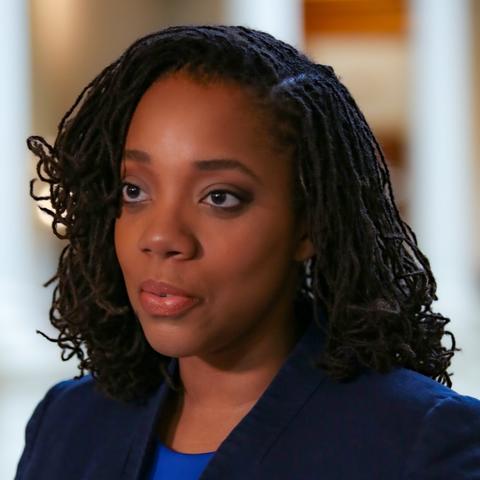
Caption
In this June 26, 2015 file photo, a man holds a U.S. and a rainbow flag outside the Supreme Court in Washington after the court legalized gay marriage nationwide. Court documents show the state of Alaska for years maintains a discriminatory policy that denied some same-sex spouses benefits by wrongly claiming gay marriage was not recognized in Alaska, long after courts ordered they be recognized.
Credit: AP Photo/Jacquelyn Martin, File



